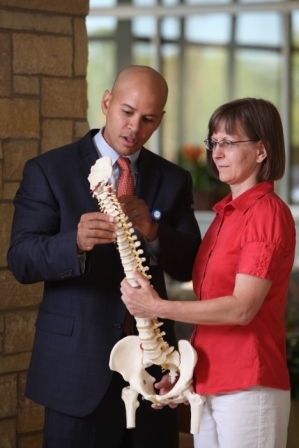7 Questions to Ask your Spine Surgeon (and Dr. Sinicropi’s Answers)
Category: Spine Surgery, Surgeons | Author: Stefano Sinicropi
 There are many things to consider when choosing a healthcare provider, especially when it comes to surgery. You want to make sure that your surgeon is experienced and well regarded in the medical community. Most importantly, you want to make sure your surgeon is someone you can trust. Here are 10 questions to ask your spine surgeon, as well as Dr. Sinicropi’s answers.
There are many things to consider when choosing a healthcare provider, especially when it comes to surgery. You want to make sure that your surgeon is experienced and well regarded in the medical community. Most importantly, you want to make sure your surgeon is someone you can trust. Here are 10 questions to ask your spine surgeon, as well as Dr. Sinicropi’s answers.
How long have you been practicing spine surgery?
Dr. Sinicropi: I began practicing orthopedic spine surgery in 2006.
Where did you go to Medical School?
Dr. Sinicropi: I attended the College of Physicians & Surgeons at Columbia University Medical School, where I received my M.D. in 1999. After that I completed my residency at Columbia University’s Presbyterian Hospital and my Fellowship at the University of Louisville.
How many procedures have your done?
Dr. Sinicropi: I have performed more than 4000 minimally invasive spine surgeries since I began practicing in 2006.
Is there a particular surgery that you would call your specialty?
Dr. Sinicropi: I perform many minimally invasive procedures, but I consider myself an expert in total disc replacement and spinal fusion surgeries.
Are you involved in any organizations or associations?
Dr. Sinicropi: I am a member of both the American Board of Orthopedic Surgeons and the National Association of Spine Surgeons, as well as the North American Spine Society.
Have you received any awards or recognitions for your work?
Dr. Sinicropi: Though I don’t like to brag about it, it was an honor to be voted a top doctor in 2014 by Minnesota Monthly. I have also been recognized by Becker’s Spine on various lists.
When you’re not working, what do you enjoy doing in your free time?
Dr. Sinicropi: Not working – what’s that? When I do find free time, there’s nothing I enjoy more than being with my family.
Remember to ask your surgeon these questions (and any more you can think of) before moving forward with treatment. It is essential that you get to know and trust your surgeon. A foundation of trust will improve your overall treatment, and speed up your recovery.